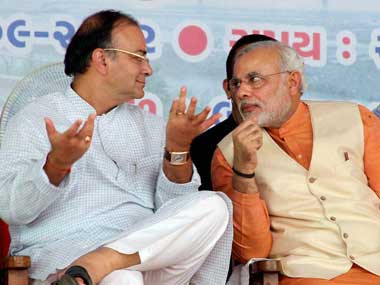
AAP MLA Madan Lal alleged at a press conference that a person close to Modi had offered him Rs 20 crore to split the party and promised to make him Chief Minister if he could do so.
"Two persons met me around 10-12 day ago. One of them told me that his name is Sanjoy Singh and he has come from Gujarat. He said he is close to Narendra Modi. Singh told me that Modiji wanted me to get the support of around 10 (AAP) MLAs," he said without producing any proof to substantiate the allegations.
The Kasturba Nagar MLA alleged that the person told him that if he succeeded in getting 10 MLAs to leave AAP, then he would be made the CM and his cabinet ministers would be paid Rs 10 crore each.
Lal also claimed that on midnight of December 7, an unidentified person had telephoned him, saying a prominent leader wanted to talk to him.
"When I asked him who wanted to talk to me, he said Arun Jaitley. After hearing Jaitley's name, I cut the phone. I could not make a call back on the unknown number," he said.
In a tweet, Jaitley rubbished the allegations. "Rubbish claims by AAP. AAP's alternative politics includes a fundamental right to falsehood and lies," he said.
Addressing the press conference, AAP leader Sanjay Singh alleged that Delhi BJP leader Harsh Vardhan and "some media persons" were also "conspiring" to bring down the Kejriwal government.
Asked why he didn't record the offer by that person as the Kejriwal government was trying to teach the common man of Delhi how to do sting operation of officials seeking bribe, Lal said he didn't have such a device.
"Besides, I didn't want to record the conversation against BJP as this is just my allegation and I don't want to fall into any legal cases," he said.
Singh alleged that both BJP and Congress wanted to create a situation so that the AAP government falls. He also alleged that both these parties were hand-in-glove with electricity distribution companies.





Comments
Add new comment